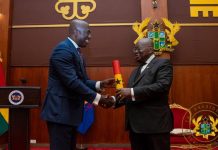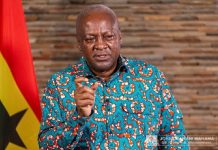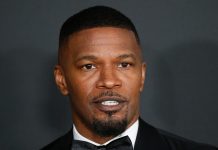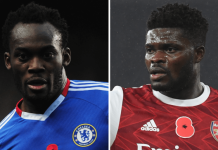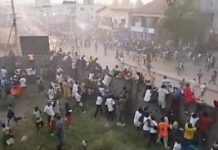The White House says it "stands in solidarity" with "its closest ally" the UK and supports its decision to expel 23 Russian diplomats.
PM Theresa May said the diplomats would be expelled after Moscow refused to explain how a Russian-made nerve agent was used on a former spy in the UK.
Moscow denies responsibility but has not yet made clear how it will respond.
US President Donald Trump's spokeswoman accused Russia of undermining the security of countries worldwide.
BBC North American editor Jon Sopel said the White House statement was notable in the unqualified support it offered Theresa May.
He said it was also significant because of the way President Trump was prepared to talk about Russia – using language that had not been heard from the White House before.
In the statement, Mr Trump's press secretary Sarah Sanders said the US wanted to ensure "this kind of abhorrent attack does not happen again".
She described the expulsion of Russian diplomats from Britain as "a just response".
"This latest action by Russia fits into a pattern of behaviour in which Russia disregards the international rules-based order, undermines the sovereignty and security of countries worldwide, and attempts to subvert and discredit Western democratic institutions and processes," she said.
Former Nato chief, Anders Fogh Rasmussen, told BBC Radio 4's Today programme the attack was part of a "wider strategy" by Russia against Europe.
He said it was time to "fight back" with prolonged sanctions and measures to target individuals close to President Putin, adding "anything short of full solidarity with the UK will be considered a victory by the Kremlin".
Former spy Sergei Skripal, 66, and his daughter, Yulia Skripal, 33, remain critically ill in hospital after being found slumped on a bench in Salisbury, Wiltshire, on 4 March.
Mrs May said the chemical used in the attack against them had been identified as being part of a group of nerve agents developed by Russia known as Novichok.
She said there was "no alternative conclusion" than to believe Russia was "culpable" for the poisonings.
The White House statement echoed earlier comments made by the US ambassador to the UN, Nikki Haley, who cited the "special relationship" between the two countries and said the US would "always be there" for the UK.
Also addressing the UN Security Council, Britain's deputy UN ambassador, Jonathan Allen accused Russia of breaking its obligations under the Convention on the Prohibition of Chemical Weapons.
In response, the Russian ambassador to the UN, Vasily Nebenzya, denied Moscow's involvement in the attack and demanded "material proof" from Britain to support its charge.
BBC




